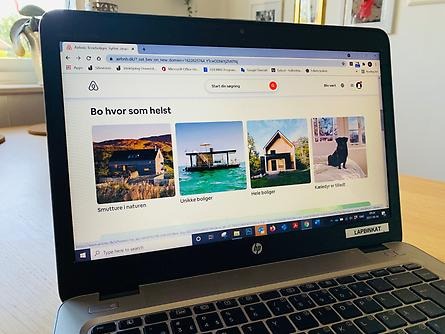New research project on governance of digital platforms
Researchers at Jönköping International Business School (JIBS), Jönköping University, have received funding for a new project that will analyse how policy makers can best govern digital platforms. By looking at the Airbnb market in Scandinavia as an empirical example, researchers hope to provide a comparison of the outcomes of regulatory versus collaborative governance.
%20Airbnb%20digital%20platform%20governance.jpg)
In Denmark, Airbnb collaborated with the national regulatory agencies and agreed to report personal income data to the Danish Tax Authority. Researchers in the project will be studying examples, like this, of collaborative governance to provide guidelines for policymakers.
Digital platforms have created challenges for societies. For example, Google has been condemned for abusing its market power in search advertising; Facebook and Twitter are heavily criticized for disseminating fake news; Amazon is under scrutiny for its poor working conditions; and sharing platforms (such as Airbnb and Uber) stand accused of reducing quality and safety standards while creating opportunities for tax evasion, to name a few. The new project, “Digital Platforms: Regulate or Collaborate?” will analyse how policy makers may tackle these challenges best.

Andreas Schneider and Marcel Garz.
The project will be led by Andrea Schneider and Marcel Garz from the Media, Management and Transformation Centre (MMTC), at JIBS, Jönköping University, who have been awarded a funding grant of 995 000 SEK from the Handelsbanken Research Foundation.
"We want to analyse different strategies that have been applied in the Scandinavian countries to regulate digital platforms. In Denmark, for example, Airbnb collaborated with the national regulatory agencies and agreed to report personal income data to the Danish Tax Authority. This led to Airbnb hosts being allowed to rent out their properties for 70 nights a year, whereas hosts on other home-sharing platforms are capped at 30 nights a year,” explains Andrea Schneider.
She points out that collaborative governance of this kind can work out well for all sides.
“For governments, one advantage of collaboration is that they avoid long-running court cases with unclear outcomes. For the users, the platforms generate more legal certainty and transparency, which increases participation. In this project, we aim to provide guidelines for policymakers under which conditions collaborative agreements are more effective than legal enforcement. This will allow societies to benefit from digital platforms while simultaneously limiting negative side effects and misuse," says Andrea Schneider.
The project 'Digital Platforms: Regulate or collaborate?' will run for three years from January 2022 to December 2024.
The Handelsbanken Research Foundation includes the Jan Wallander's and Tom Hedelius's foundation as well as Tore Browald's foundation, which are intended to support social science research, primarily in economic history, economic geography, business economics, economics and econometrics. More information can be found here.
